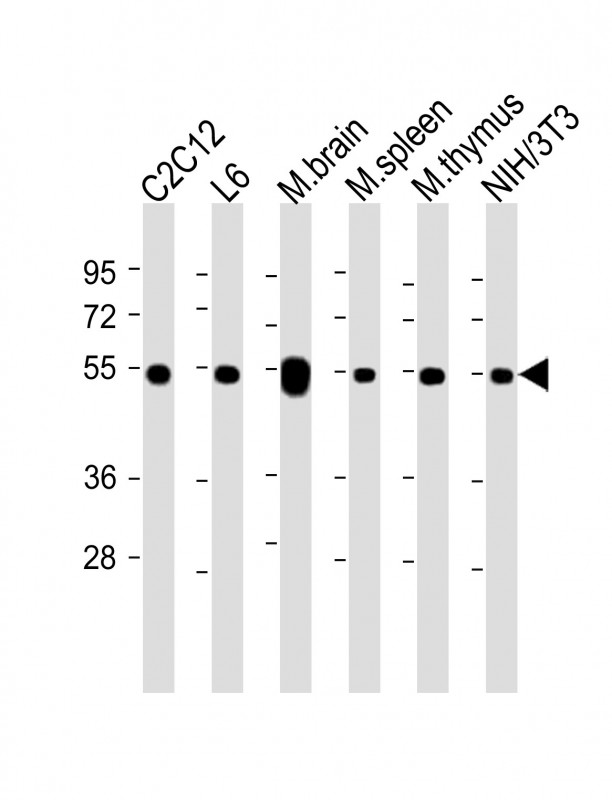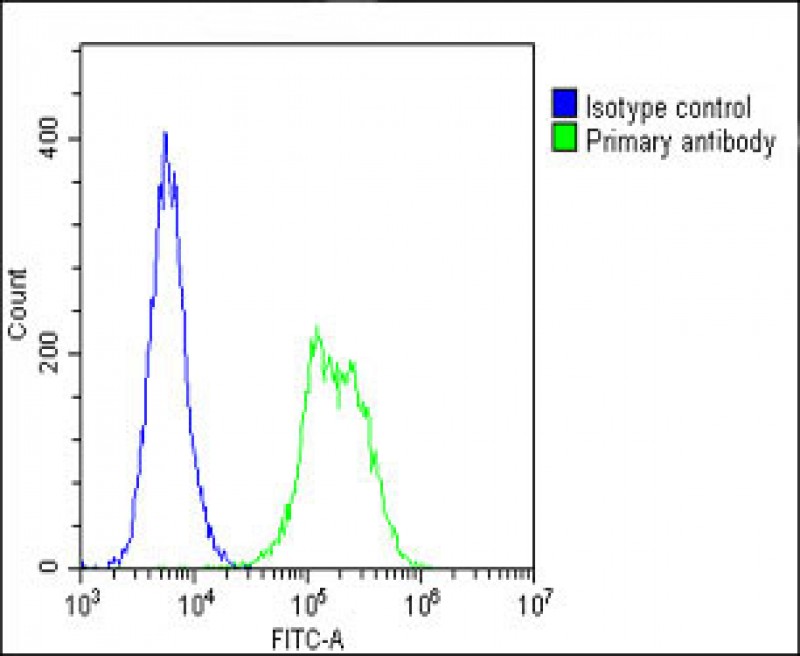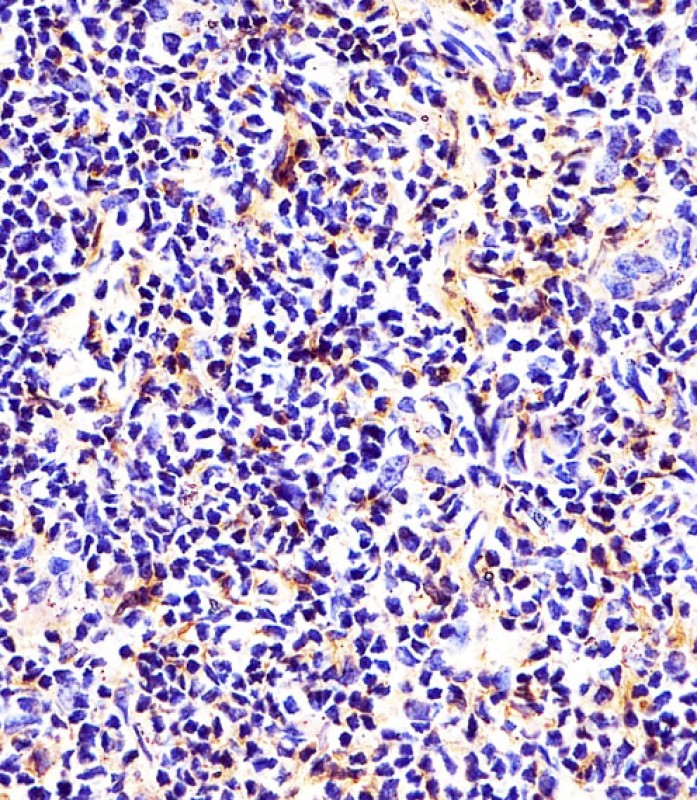


| WB | 1/2000 | Mouse, Rat |
| IF | 咨询技术 | Mouse, Rat |
| IHC | 1/100-1/500 | Mouse, Rat |
| ICC | 技术咨询 | Mouse, Rat |
| FCM | 1/25 | Mouse, Rat |
| Elisa | 咨询技术 | Mouse, Rat |
| Aliases | Tubulin beta-5 chain, Tubb5 |
| Entrez GeneID | 22154 |
| WB Predicted band size | 49.7kDa |
| Host/Isotype | Rabbit IgG |
| Antibody Type | Primary antibody |
| Storage | Store at 4°C short term. Aliquot and store at -20°C long term. Avoid freeze/thaw cycles. |
| Species Reactivity | Mouse, Rat |
| Immunogen | This antibody is generated from a rabbit immunized with a KLH conjugated synthetic peptide between 46-78 amino acids from human. |
+ +
以下是关于β-Tubulin抗体的3篇参考文献摘要:
---
1. **标题**: "β-Tubulin antibodies: novel probes for in vitro microtubule studies"
**作者**: Gunning, P.W., et al.
**摘要**: 该研究评估了多种β-Tubulin抗体的特异性,验证其在免疫印迹和免疫荧光中的适用性,强调其在细胞骨架动态研究中的作用。
2. **标题**: "Validation of β-Tubulin as an endogenous control for gene expression in NSCLC"
**作者**: Varga, Z., et al.
**摘要**: 通过对比肺癌组织样本,证实β-Tubulin抗体作为内参的稳定性,支持其在qPCR和Western blot中作为标准化参照的可靠性。
3. **标题**: "Cross-reactivity of anti-β-Tubulin antibodies with different isotypes"
**作者**: Roostalu, J., & Surrey, T.
**摘要**: 分析不同β-Tubulin同源异构体的抗体交叉反应性,揭示抗体选择对特定亚型检测的重要性,并建议实验设计中需谨慎匹配抗体与目标亚型。
---
这些文献覆盖了β-Tubulin抗体的应用验证、标准化及特异性分析,适用于实验设计参考。
Beta-tubulin, a crucial component of microtubules, is a highly conserved cytoskeletal protein involved in vital cellular processes such as mitosis, intracellular transport, and maintenance of cell shape. As part of the tubulin superfamily, it forms heterodimers with alpha-tubulin, polymerizing into dynamic microtubule networks. Multiple beta-tubulin isotypes exist (e.g., βI, βIII, βIV), with tissue-specific expression patterns and functional specializations. For instance, βIII-tubulin is enriched in neurons and serves as a neuronal marker, while βI is ubiquitously expressed.
Beta-tubulin antibodies are essential tools in biomedical research, widely used as loading controls in Western blotting and immunohistochemistry due to beta-tubulin's consistent expression across most cell types. These antibodies typically target conserved epitopes in the C-terminal region, enabling broad species reactivity. Monoclonal antibodies (e.g., AA2. D71G3) offer high specificity, whereas polyclonal antibodies may detect multiple isotypes. Researchers often validate them using knockout cell lines or siRNA knockdown to confirm specificity. Beyond housekeeping applications, beta-tubulin antibodies help study microtubule dynamics, drug mechanisms (e.g., taxanes, vinca alkaloids), and pathological conditions like neurodegenerative diseases and cancer. Commercial availability from major suppliers and standardized validation protocols have cemented their role as indispensable reagents in cellular and molecular biology studies.
×